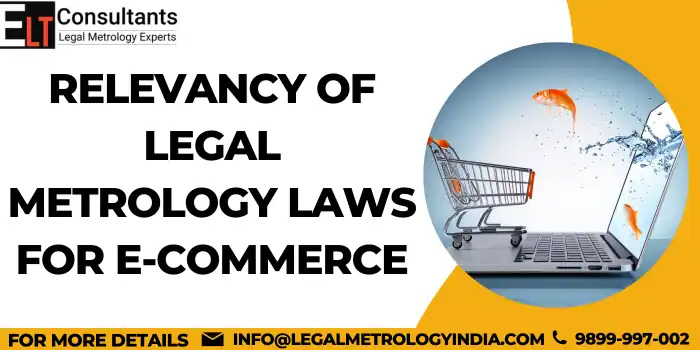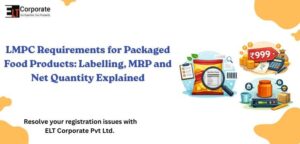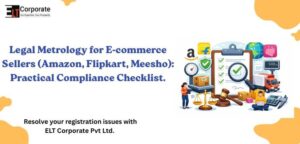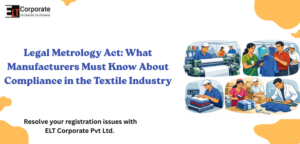In the past few years, the pandemic has affected the lives of everyone in the world. It makes people unable to go out and shop for themselves or for their livelihoods, which ultimately directly or indirectly increases the percentage of online shopping. After that, the laws intended for e-commerce to protect the rights and interests of the consumer started playing an important role for the e-commerce entities and for the consumers as well.
In the present scenario, the coronavirus has had an adverse impact on everyone’s lives, and to keep our health secure and safe, all of us have switched to online shopping, which is nowadays more preferable comparison to offline shopping. When all the people out there are preferring online shopping, then it is mandatory for the legal system to protect the rights of the consumer in e-commerce as well so that no fraudulent activities will take place with the consumers in order to protect their interests.
Legal metrology laws for e-commerce entities
- The laws for e-commerce and consumer protection while interpreting the rules have gained much prominence among the public.
- The central government, in the exercise of its power provided under the Legal Metrology (Packed Commodity), Rules 2011, and the Legal Metrology Act 2009, introduced important amendments to the Legal Metrology (Packaged) Rules on June 23rd, 2017 in relation to e-commerce entities.
- The amendments under the Legal Metrology packed commodity rules 2017 were also issued on June 23rd, 2017, which later came into force on January 1st, 2018.
Declarations on the e-commerce web portal
- According to rule 10 of the act, e-commerce companies are required to make certain declarations on the packaged commodities or on the digital and electronic platforms that are mainly used for commerce platforms.
- Amendments have to be made as per the Act and all the products are sold on the digital network under the act without the purchaser being present at the time of packing.
- The products sold by e-commerce entities would fall under the category of packaged commodities.
- The products sold by e-commerce entities would be included under the legal metrology act and its rules.
- Products that are exempt from the provisions of the amendment rules
- Any package which contains food articles is governed by similar provisions that are present in the Food Safety and Standards Act 2006.
- Fertilizers, agricultural farms, cement, and agricultural farm produce sold in excess of 50 kilograms are exempted from the provision of the amendment rules.
- A package of commodities containing a quantity of more than 24 kilograms, all containing a quantity of more than 25 liters.
- Any packaged commodity which is meant for industrial consumers or institutional consumers.
Declarations by e-commerce entities
- It is the responsibility of the manufacturer, seller, dealer, or importer to make the declarations in the correct form on the E-commerce portals or on the E-commerce sites.
- The proper address of the manufacturer or importer should be mentioned on the product or commodity.
- The country of origin should be mentioned on the e-commerce site.
- The Declaration of MRP should include all the taxes that must be mentioned on the commodity.
- Detailed information about the product or the commodity should be mentioned on the package of the commodity and on the e-commerce portal.
- The email ID along with the full address of the manufacturer, importer, and packer must be mentioned on the e-commerce site.
- Every commerce site shall have a contact number of its own on the e-commerce portal.
Legal Metrology E-commerce Consultancy
Any e-commerce entity should take a consultation from the legal metrology expert or the advocate who deals with the legal metrology act and have the full knowledge and information about the compliances which are to be done by the e-commerce entities.
It is the prior responsibility of the e-commerce entity or e-commerce portal to take care of the legal compliance while dealing with the consumer.
Every manufacturer whosoever is dealing by way of an e-commerce portal should fulfill all the legal requirements as per the legal metrology act, and if in case he faces any problem or gets confused at any point of time, he should immediately contact the legal metrology consultant for e-commerce sites.
What are e-commerce entities?
- E-commerce entities refer to the companies incorporated under the Companies Act 1956 and also the companies that are incorporated under the Companies Act 2013.
- Any foreign company covered under clause 42 of section 2 of the Companies Act 2013, any agency in India covered under subclause 2 of clause 5 of section 2 of the Foreign Exchange Management Act 1999, which is owned and controlled by a person residing outside India and conducting e-commerce business in India,
- Basically, e-commerce refers to the buying and selling of goods and services, which also includes digital products over digital and electronic networks.
Amendments to the rules of e-commerce entities
Some major amendments took place in relation to e-commerce entities, which were introduced as amendment rules are as follows:
Marketplace-Based Model of e-commerce
A marketplace-based model of e-commerce provides information on the platform of technology by way of an e-commerce entity on an electronic network or a digital network to act as a facilitator between the seller and the buyer.
Under the Indian laws, there are two models of e-commerce entities as described. These are:
Inventory-LED model
- Under this model, there are no multiple sellers who sell the same product. It is different from the marketplace, where buyers get to choose the same thing from several merchants.
- The Inventory LED model allows the company to source products directly from brands and sellers and allows them to keep their stock.
- Under this model, the invoice is issued directly to the customer in the company’s name, and the seller is an e-commerce company only.
- Jabong is an important example of such a model.
Marketplace Model
- The function of the marketplace model is limited to providing access to a communication system for the seller and the buyer.
- This model does not initiate the transmission of information.
- Under this model, it is important to select the receiver of the information.
- The selection is made in the modification of the information contained in the transmission.
- The zero-inventory model is followed by the pure e-commerce marketplace.
- Amazon is the best example of an e-commerce player.
- Under the marketplace model, the company acts as a meeting ground for sellers and buyers without storing any goods.
- However, the company may offer shipping and payment assistance directly or by giving an option to select logistics financial partners and players.








